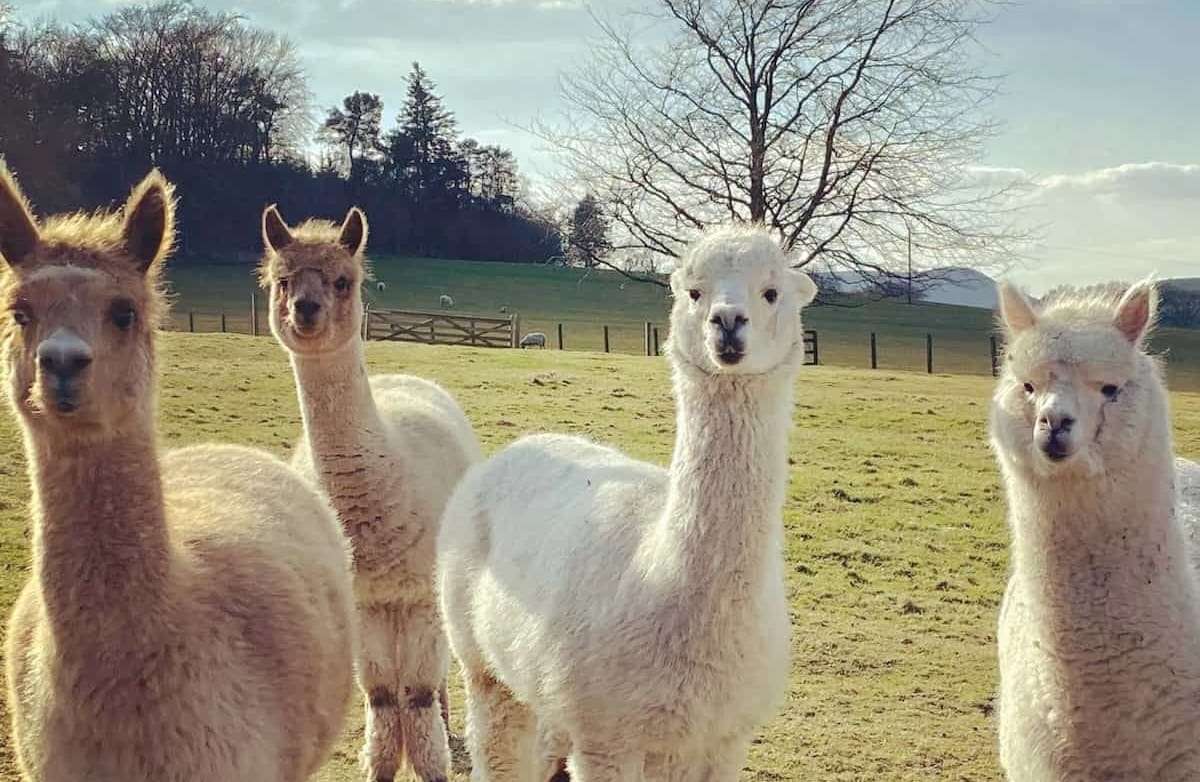
Animal Experiences During Addiction Therapy
Castle Craig offers exemplary residential drug and alcohol addiction rehabilitation in the UK, set within our beautiful 50-acre estate in the Scottish Borders. Our approach combines evidence-based treatments with a holistic focus that supports the physical, emotional and psychological aspects of recovery. With opportunities to connect with nature and animal-assisted activities outdoors, such as alpaca and equine interactions, our unique environment promotes healing and reflection both indoors and outdoors. Our experienced multidisciplinary team provides medically managed detox and tailored care for substance misuse, creating a supportive and private space to recover.
If you’d like to learn more about how Castle Craig’s residential addiction treatment could help you or a loved one take the first step towards a healthier, sober life, our team is here to help. Reach out today on 01721 546 263 to discuss our therapies, ask any questions you may have and find out how our blend of expert care and natural surroundings can make all the difference in your journey to sobriety.
What Are Alpaca Experiences?
Alpaca interactions complement the holistic rehab treatment programme at Castle Craig. Patients can view the alpacas in their field in the hills and occasionally may accompany staff on a walk with the alpacas.
Some beautiful alpacas reside at our centre, and they all contribute to a positive mindset by promoting calm and reducing anxiety levels. If you are unsure about interacting with an alpaca at Castle Craig, you can simply enjoy seeing them outside as you walk past or look out of your window. Their friendly and curious nature encourages comforting, emotional connections, providing a soothing experience for reflection and personal growth. We believe that being around such serene animals can inspire hope, motivation and a renewed sense of purpose as you work towards drug and alcohol addiction recovery.

Start Your Recovery at a Residential Rehab Today
Free Drug and Alcohol Addiction Assessment
At Castle Craig, we provide free drug and alcohol addiction assessments to help you take the first step towards sobriety. Our team will listen with care and respect, guide you through this initial process and offer clarity about the next steps, helping you feel supported from the very beginning of your treatment with us.
Following your free assessment, we can create a tailored residential treatment plan designed to meet your personal needs. We aim to offer individualised care that addresses your challenges and empowers you on the path to a healthier, more fulfilling life. Contact us today on 01721 546 263 to explore how we can help.
Benefits of Alpaca Activities Whilst at An Addiction Rehab
An alpaca is a domesticated species of the South American camelid, valued for its soft fleece and gentle temperament. These dynamic animals are increasingly used by licensed professionals in clinical settings, such as addiction or mental health recovery, where their calming presence supports enjoyable outdoor activities during treatment at drug and alcohol rehabs.
Alpacas are kind-hearted animals are known for their calming companionship, which can ease emotional struggles and promote a sense of peace. Bonding with animals during substance misuse recovery can reduce stress and nervous energy, as well as enhance self-esteem and promote emotional healing. Below, we explore the specific ways that interactions with alpacas can complement the mental healing process.
-
Reduces Stress, Anxiety and Emotional Tension
The steady presence of alpacas helps create a soothing environment, making it easier to manage stress and reduce anxiety. Their gentle movements and peaceful demeanour can have a reassuring effect, allowing you to step back from overwhelming emotions and find a moment of calm during difficult times.
Interacting with animals can also help release emotional tension in a supportive setting. By creating a safe space for self-reflection, alpaca-assisted therapy encourages a more relaxed and open state of mind, making it easier to focus on long-term recovery goals.
-
Promotes Emotional Healing and Mindfulness
Alpacas can support emotional healing by providing a calm and accepting presence. Their kind, non-verbal communication helps you feel grounded, making it easier to address difficult emotions without fear of judgement. This process promotes emotional healing by allowing you to experience moments of genuine peace and contentment.
Spending time with alpacas also encourages mindfulness, helping you stay focused on the present moment. This practice alleviates negative thought patterns, allowing for greater clarity and emotional balance as you progress on your recovery path.
-
Builds Trust, Connection and a Sense of Safety
Alpacas’ approachable nature makes them excellent companions for building trust and connections. Their calm and patient behaviour allows for positive interactions, even if trust has previously been difficult to establish in your life. This process provides a strong foundation for personal growth and healing.
Meaningful time spent with animals further creates a sense of safety and emotional comfort. The bond formed with alpacas can ease feelings of vulnerability, promoting openness and helping to rebuild trust in others and in yourself.
-
Improves Mood, Motivation and Outlook During Recovery
Spending time with alpacas has also been shown to lift spirits, offering moments of joy and positivity. Their playful and gentle nature can help you feel more hopeful, even during challenging days, and promote a brighter outlook on recovery.
-
Boosts Self-Esteem and Personal Confidence
Interacting with alpacas allows you to experience feelings of accomplishment and connection, which can significantly boost self-esteem. Their warm reactions to your presence can reinforce a sense of value and self-belief during rehab.
-
Encourages Healthy Social Interaction and Communication
Alpacas’ non-judgemental and unassuming ways provide an excellent platform for developing social confidence and communication skills. Engaging with them can make interactions feel easier and more manageable, particularly for those working to overcome social difficulties.
-
Provides Non-Judgemental Comfort and Emotional Reassurance
The unconditional acceptance offered by alpacas provides a source of comfort and emotional reassurance. Their quiet companionship allows you to feel understood and supported without the pressure of verbal communication or expectations.
Such non-judgemental comfort can have a profound impact on emotional well-being, easing feelings of isolation or self-doubt. The support offered by alpacas helps reinforce the belief that kindness and healing are within reach.
-
Creates a Calming, Nature-Based Therapeutic Environment
The natural surroundings and outdoor activity, combined with the alpacas’ calming energy, provide a peaceful escape from daily challenges.
At Castle Craig, our countryside location immerses you in a tranquil, nature-based setting that encourages relaxation and mental clarity. The combination of scenic landscapes and interaction with our four alpacas creates a sense of balance and grounding. This supports emotional well-being, complementing our drug and alcohol addiction recovery environment.


How Do Alpaca-Assisted Activities Work?
During alpaca-assisted activities, participants can engage with alpacas through activities like petting and sometimes walking. These sessions occur in calm, natural settings, encouraging mindfulness and relaxation. Patients may observe or interact with the alpacas in their field, promoting emotional connection and building trust while enjoying a sense of calm and focus.
This is a relaxing activity that patients can experience during rehab that often helps to reduce stress, improve emotional regulation and increase confidence. Their gentle and curious nature provides a soothing, non-judgmental environment and warm moments with animals can help participants feel grounded, supported and better equipped to manage their emotions during residential rehab.
Alpaca Interactions During a Rehab Near Me
Alpaca interactions offer a refreshing, complementary approach to alcohol or drug addiction recovery by adding a fun and unique animal experience to your residential stay. These sweet-tempered animals bring feelings of calm and balance, supporting your pathway to a healthy frame of mind.
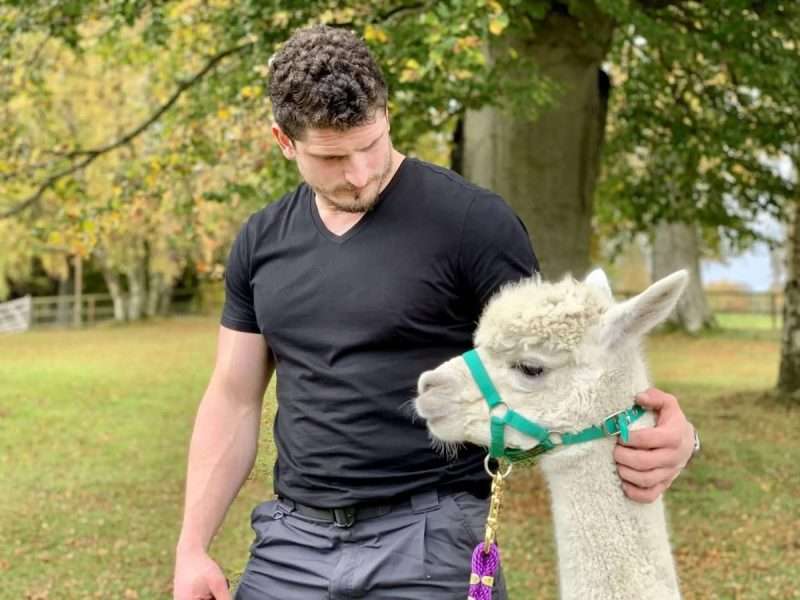
Contact Castle Craig Inpatient Rehab Centre
Castle Craig, located in West Linton, Edinburgh, United Kingdom, EH46 7DH, offers a calm and welcoming environment for addiction rehabilitation. Set amidst beautiful countryside, we provide the perfect setting to focus on healing while benefiting from the presence of animals and alongside proven therapeutic methods tailored to your needs.
Find Us
01721 546 263
info@castlecraig.co.uk
Castle Craig,
West Linton, Edinburgh, United Kingdom, EH46 7DH
Castle Craig offers animal-assisted activities, including alpaca interactions and equine-assisted therapy, as part of our holistic approach to substance misuse recovery. These additions to treatment provide a unique way to encourage emotional healing and personal growth using the nurturing presence of animals to help you on your recovery journey.
For further details about residential treatment for alcohol and drug addiction, call 01721 546 263. Our compassionate team is ready to guide you through the admissions process, answering your questions and helping you take the important first step towards sobriety.
-
How to Find Addiction Therapy with Alpaca Experiences Near You
Finding alpaca experiences during addiction recovery can feel difficult, especially since UK rehabs vary depending on multiple factors such as location, services offered and the type of holistic treatment options provided. To help you get started, here are some practical steps to identify the best options for your needs:
- Contact Substance Misuse Rehab Centres: Reach out to local rehab centres to ask them about any animal encounters or experiences that may be available. Use specific search terms like “Alpaca experiences during addiction treatment in Edinburgh or Scotland” or “UK rehab centres with animal encounters near me” to refine your online search. Speaking with the centres directly can help you find out exactly which experiences they offer in rehab.
- Check Online Reviews & Reputation: Spend time reading reviews and checking ratings for facilities that offer animal encounters. Look at testimonials from previous patients to get a sense of the care they provide. Trustworthy, accredited rehab centres often have positive feedback and a solid reputation that can provide peace of mind when deciding where to seek help.
- Contact Substance Misuse Rehab Centres: Many rehab centres integrate animal experiences into their treatment programmes. Try searching online using queries like “Alpaca walking in the United Kingdom,” “Addiction rehab with animals Scotland,” or “Substance misuse rehab Edinburgh or Glasgow” to refine your search.
- Ask About Residential Treatment Amenities: Enquire about the amenities offered by residential rehab centres. Comfortable accommodation, therapy spaces and surroundings can make a significant difference to your recovery experience.
- Ask About Other Therapies: It’s important to know how alpaca walking fits into a broader treatment programme. Ask about other therapeutic options provided, such as addiction counselling, mindfulness sessions or group therapy.
- Ask About Their Experience and Credentials: Make sure the facility and staff are fully qualified. Their experience and credentials demonstrate their ability to deliver safe, effective and compassionate treatment tailored to your needs.
-
What is Alpaca Therapy?
Alpaca therapy is a form of animal-assisted therapy, where gentle interactions with alpacas are incorporated alongside therapeutic support. In this approach, spending time with animals can help people feel more at ease, open up emotionally and explore their thoughts and feelings in a different way. Animals like alpacas can act as calming, non-judgmental companions that make it easier to connect with the therapeutic process and support wellbeing.
Castle Craig does not offer alpaca therapy, but offers patients the experience to meet and walk with resident alpacas.
Find Out About Our Residential Treatment
Castle Craig offers free drug and alcohol addiction assessments to help you take the first step towards recovery. Our experienced team is dedicated to understanding your unique situation, providing a compassionate and confidential service designed to guide you towards the support you need.
We create tailored treatment plans to suit your individual requirements, offering a clear and accurate understanding of residential rehab costs and the different ways to pay. Contact our team today on 01721 546 263 to discuss your circumstances and explore how we can help you begin your recovery with confidence.
Free Addiction Assessment
Taking the first step and asking for help can feel daunting, but our team is here to assist you.
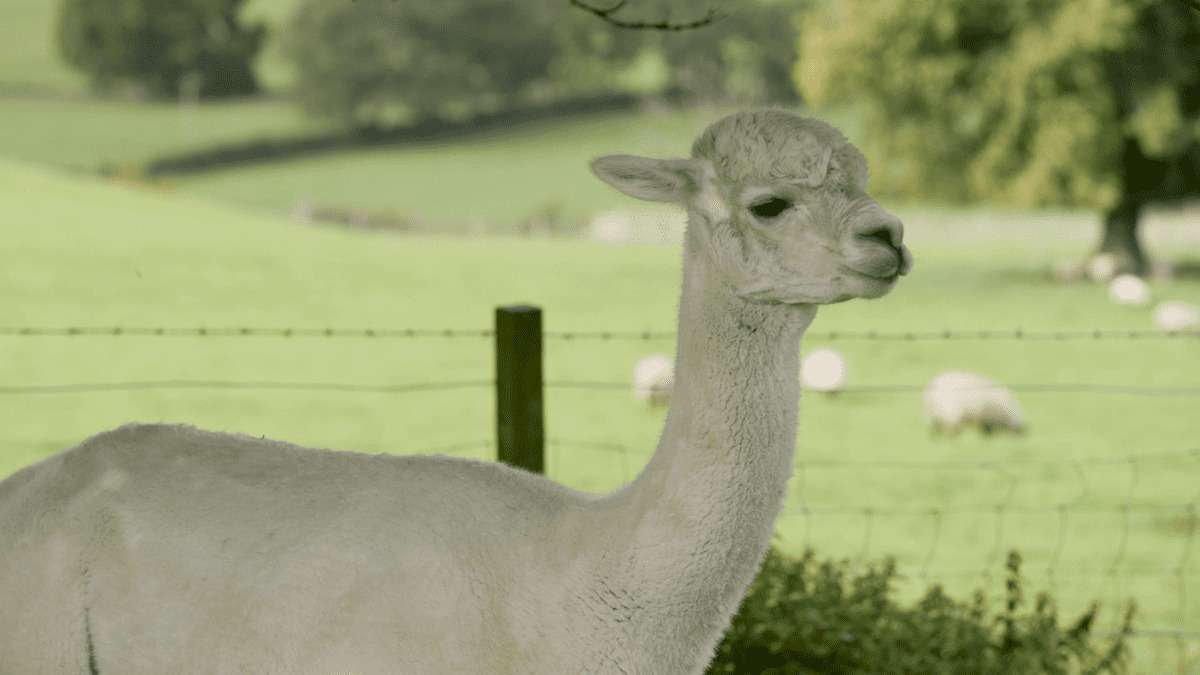
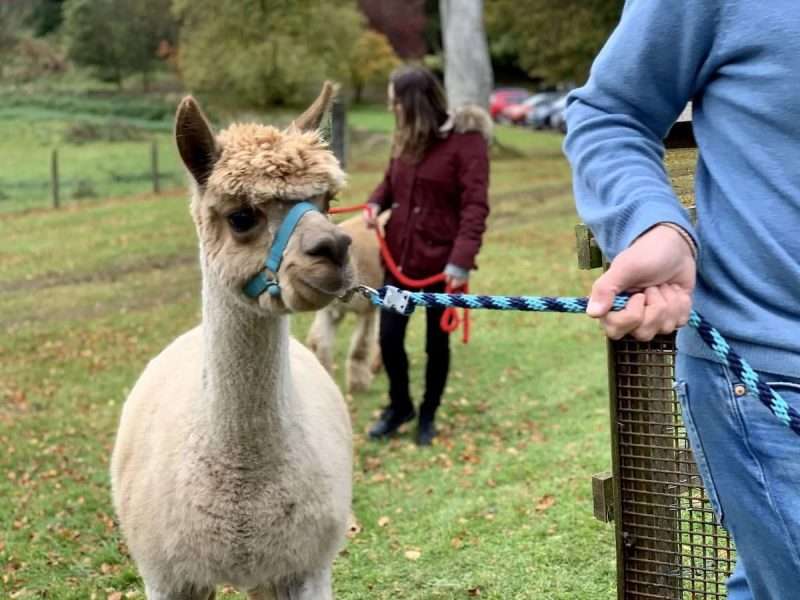
Contact Castle Craig Today
If you or a loved one is struggling with addiction, take the first step towards recovery by contacting Castle Craig. To speak with a member of our team, call us today on 01721 546 263. Alternatively, you can fill out our online form to get started. We are dedicated to helping you find the path to stable abstinence and a fulfilling, sober life.
How Much Does Treatment That Includes Alpaca Encounters for Drug and Alcohol Rehab Cost?
Some rehab centres may incorporate alpaca activities into their addiction treatment programmes. A comprehensive 28-day addiction treatment programme typically ranges between £18,000 and £40,000, depending on the services, facilities and complementary therapies included.
If you’re interested in experiencing interactions with animals as part of your rehab stay, contact us at Castle Craig to discuss how it could be integrated into your treatment schedule. Our team is here to help, seven days a week.
Questions About Holistic Rehab Treatment?
Contact us to discuss your treatment needs with a licensed clinician.
How to Get Admitted for Holistic Therapy for Addiction Treatment
Our research-based and holistic addiction treatment is designed to meet your specific needs. This personalised approach considers your unique circumstances and recovery goals. Below is an outline of the steps to get started:
- Contact Castle Craig Admissions Team: Reach out to our compassionate admissions team, who are ready to guide you through the process and answer any questions you may have. We’ll provide all the information you need about our services and discuss the steps required to begin your treatment.
- Complete a Confidential Addiction Assessment: This alcohol or drug assessment helps us understand your situation and challenges. It’s carried out with care and respect, aiming to create a treatment plan best suited to your recovery path.
- Discuss Alpaca Activity Options: During the process, we can explore how holistic and experiential activities (such as alpaca and animal interactions) can complement your stay and answer any questions you have about our other holistic treatments.
- Confirm Costs, Payments or Insurance: Understanding the financial aspects of addiction treatment is important. We will help you review the costs involved and discuss payment options or insurance coverage to make the process as stress-free as possible.
- Schedule Your Addiction Rehab Admission Date: Once everything is in place, we’ll help you set a date to begin your residential rehab treatment. Our team will guide you through the final preparations, making sure you feel supported as you take this important step toward recovery.
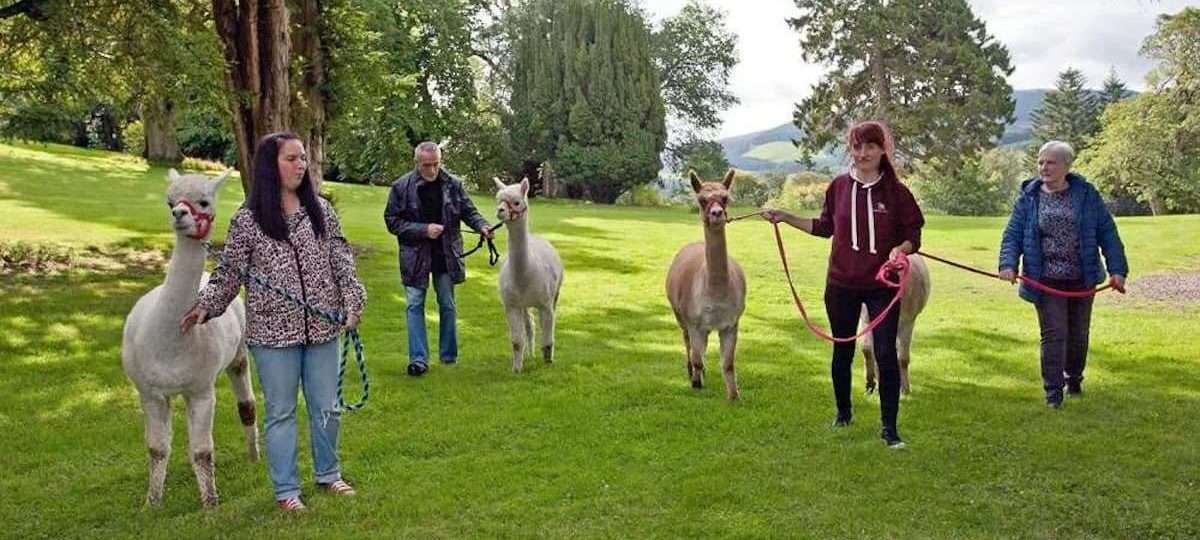
Contact Castle Craig Today
If you’re ready to take the next step towards recovery, contact Castle Craig. Our team is here to guide you through our residential treatment options and admissions process. You can also book a free addiction assessment designed to support you in starting your recovery with confidence.
Call us today on 01721 546 263 to speak with our compassionate team. Alternatively, you can fill out the online form below, and we’ll get in touch to help you on your journey to healing. We’re here to help every step of the way.
Free & Confidential Assessment
Compassionate, expertly delivered evidence-based practices and a patient-centred approach are at the heart of our treatment model. Request a call-back from one of our professionals on any day of the week.
-
Statistics on Alpaca Encounters During Rehab Programmes in the UK
- Nearly three-quarters (72%) of adults starting treatment in 2023-2024 reported a mental health treatment need, showcasing the importance of integrated care.
- Animal interactions, such as alpaca walking, has been shown to reduce stress and promote emotional healing, as highlighted by Castle Craig’s therapeutic programmes.
- The NHS Well-being Service in Cumbria offers an “Alpaca Walk” programme at Alpaca Ever After, designed to boost mood and encourage gentle physical activity.
- Alpaca sessions have been used in NHS facilities, such as Lanchester Road Hospital, where alpacas visit to provide comfort and reduce stress for patients.